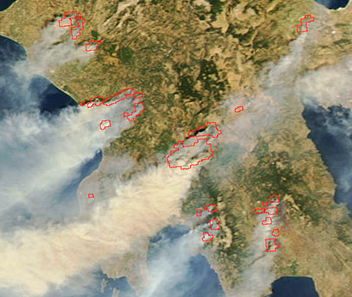ATHENS, Greece -- When Greek Prime Minister Costas Karamanlis called for elections last month, he couldn't imagine that the forces of nature might unite to thwart his party's bid for a second term. Just weeks before the general elections, scheduled for Sunday, Sept. 16, forest fires fueled by wind, drought and the summer heat made the hills of the Peloponnesus bald, laying bare the inefficiencies and corruption of the country's political leadership. Greece doesn't have a nationwide land registry nor forestry maps, pointed out foreign media, and lax development laws encourage arsonists, who started many of the fires. Firefighters struggled with antiquated equipment, lacked satellite imagery that would have allowed them to understand where and how the fires started, and had to rely heavily on French, Italian and Russian water-bombing aircraft to subdue the flames. As local TV stations broadcast images of villagers trapped by the fires while the emergency services struggled to coordinate rescue efforts, many wondered if the flames were destroying the advantage of Karamanlis' Nea Demokratia (New Democracy) party in the polls as well.
On Eve of Greek Elections, Political Fallout From Fires Dominates Debate

